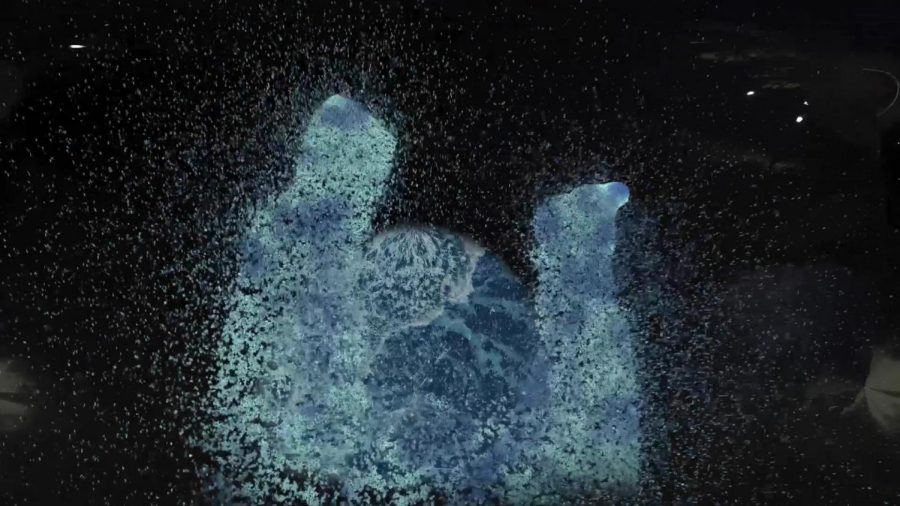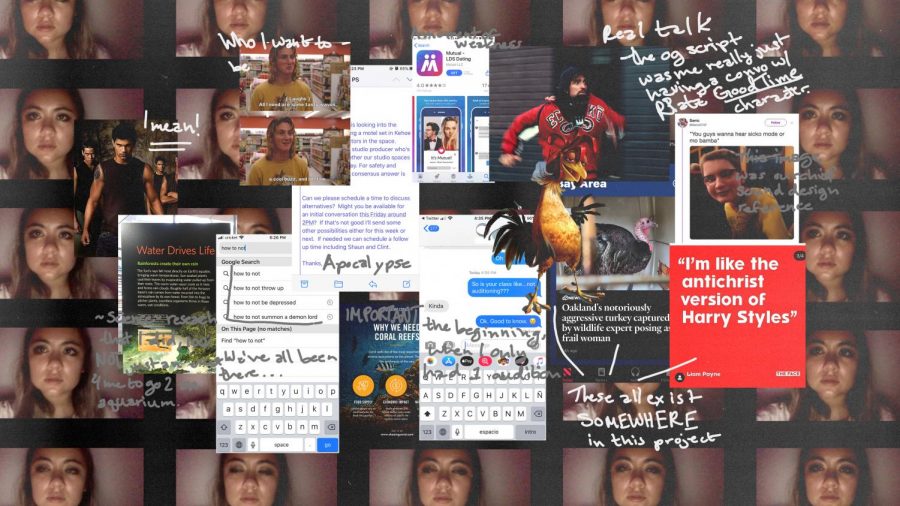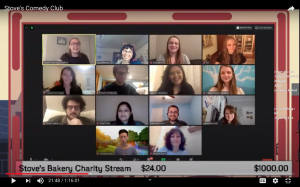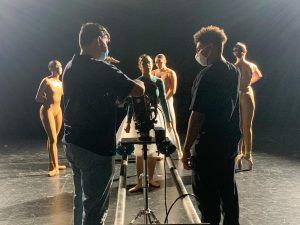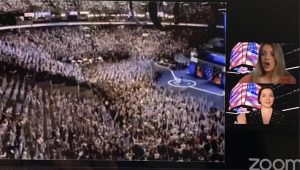Fordham Theatre Presents Studio Fest
COURTESY OF CLAIRE TALBOTT
Water was a major design element in the studio show “Nineveh,” and creator Claire Talbott uses the phrase “be water” to describe having to adapt to a virtual theatre format.
December 30, 2020
The pandemic may have temporarily taken away in-person theater, but what remains is the creativity and the power of the arts to bring people together and forge a community. From Nov. 30 to Dec. 5, Fordham Theatre hosted its first-ever Studio Fest, a virtual festival showcasing eight student productions. It featured professional talkbacks in addition to the students’ pieces, which had passion and love infused into them from the students and staff in the department. The productions are available on the Studio Fest website until Feb. 1.
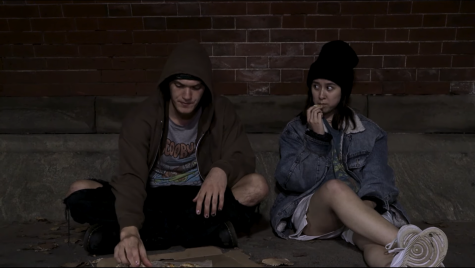
“Nineveh”
One of the productions, “Nineveh,” was a short film, written and directed by Claire Talbott, Fordham College at Lincoln Center (FCLC) ’21, that crossed the line between abstraction and reality. Described on the website as a short abstracted documentary, the show makes use of special effects to create an out-of-body experience for the viewer that was completely open to interpretation. In her director’s note, Talbott consistently uses the phrase “Be Water” as a way of explaining the difficulty of having to change things so drastically for a virtual show.
Talbott described the strenuous process of directing the show as “one of the hardest things” she’s ever done. She and her team had to overcome a myriad of filming obstacles, from changing shooting locations last minute to Talbott having to go on bedrest and direct the entire film through FaceTime while high on painkillers. “Facetime was a nightmare because there was no way to connect the camera to the phone. Basically, Scott, our rockstar ASM (Assistant Stage Manager), had to hold the phone up to the camera’s viewfinder as I directed the actors, DPs (Directors of Photography), and anyone else with absolutely no knowledge of the area outside of what I could see on screen.”
For Talbott, working on this piece was a spiritual experience. “At the end of the day, Nineveh is just going to be a weird little project I made in college. But the experience changed everything for me … I learned that everything will be okay in the end. It won’t be what you expect. It might not look pretty. But it will be okay.”
“Into Me See”
“It became about going to try and find intimacy together despite the boundaries surrounding us rather than trying to bring intimacy to you.” Daria Kent, FCLC ’21 and creator of “Into Me See”
Another production, “Into Me See,” explored the concept of intimacy during the coronavirus pandemic in an incredibly honest and vulnerable way. Described on the website as a soft, autobiographical solo performance, the show features creator Daria Kent, FCLC ’21, talking with audience members over Zoom about her journey with intimacy since COVID-19 hit. After greeting the audience members, Kent discussed a range of different topics, including how much she misses the intimacy of Lush soap stores; the feeling of being touched, held and cuddled; the struggles of dating during COVID-19; loneliness in New York, and even crying.
A standout line from the show was when Kent said to the audience, “We see each other on Zoom, obviously, but how do we see into each other?” The conversation was relatable for many during the pandemic, and Kent and her audience’s vulnerability was beautiful to experience as a viewer.
Speaking on how she was able to share such vulnerable experiences, Kent said she got used to it after running the play about 12 times for different audiences. “When it came to performing for larger groups of people, many of whom I didn’t know, I was very comfortable opening up. Performing this text actually creates a sense of distance for me around the events I describe.”
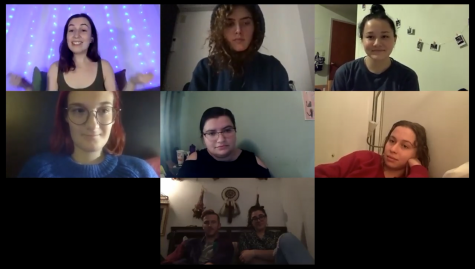
After the production, there was a talkback with Emily Morse, the artistic director of New Dramatists, a 71-year-old artistic home and laboratory for playwrights. During the talkback, Kent, who considers herself a writer who sometimes performs, explained that her writing process always starts with music. As she listens to music, she crafts documents full of her ideas then brings them together to create a story and take her audience on a journey.
Initially, Kent said, the show was supposed to be a traveling piece, where she would go to the audience members’ apartments and interact with them as she discusses intimacy. But as cases got worse, they had to change that and turn it into something digital. Kent believes it worked out better this way.
According to Kent, when the production became virtual, “it became about going to try and find intimacy together despite the boundaries surrounding us rather than trying to bring intimacy to you.” After all, the reason why she even made a piece about intimacy is because of the pandemic and the difficulty it has created around the topic.
Ultimately, Kent believes that it is essential to move beyond conventional theatrical techniques in a digital space. “The medium is the message; digital mediums require new ways of understanding theatricality and live-ness. I found that participatory theatre or involving the audience in the creation of this experience was a great way to counter the alienating effect of Zoom.”

